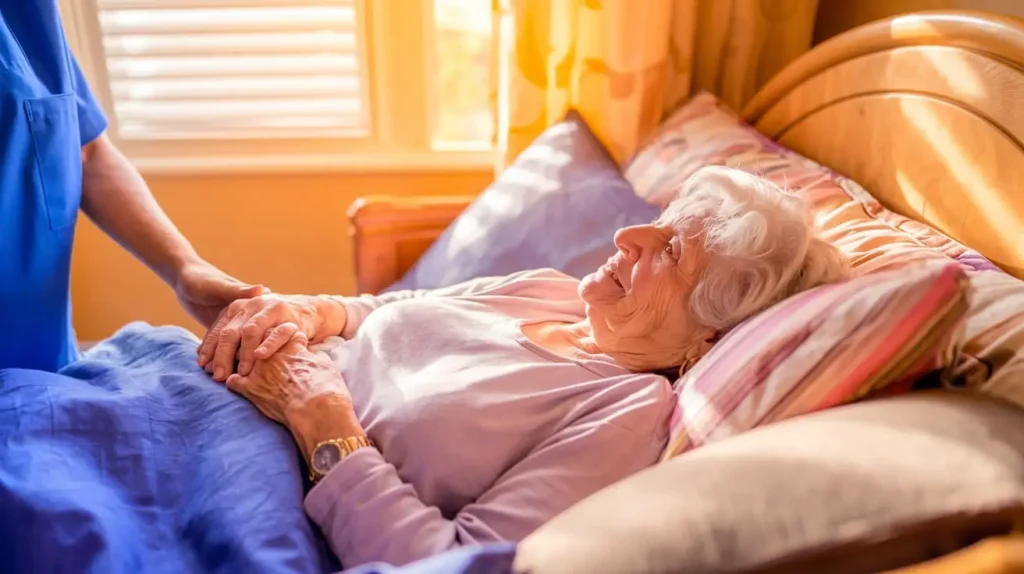
How to Care Seniors at Home: 11 Golden Tips
How to care seniors at home? Caring for the elderly hospitalized at home faces many challenges that require special attention. Many of us have elderly people living at home who are immobile, bedridden, or incapacitated. These elderly people are usually unable to move or do their own things. Some need care due to loss of physical ability or mental problems such as Alzheimer’s.
Cleaning, grocery shopping, cooking, and medication management are among the tasks that you will have to perform as a caregiver. In this article from the humanhealthmag, we examine the importance, challenges, and solutions for improving home caring for disabled senior grandparent, parent, or another loved one.
Cause of Elderly Incapacitation
Really, what causes a person to be incapacitated? Most elderly people suffer from serious illnesses and disabilities during their old age due to various diseases and difficult physical conditions. It is usually very difficult to take care of elderly people who are bedridden and unable to get up, and an assistant must be used to perform daily tasks or feed them.
Most bedridden elderly people suffer from diseases such as heart attack or stroke, diabetes, surgery, osteoporosis, bedsores, and many diseases that prevent the elderly from moving. Therefore, using a home elderly nurse to care for the hospitalized elderly at home is much better than caring for them in nursing homes or hospitals.
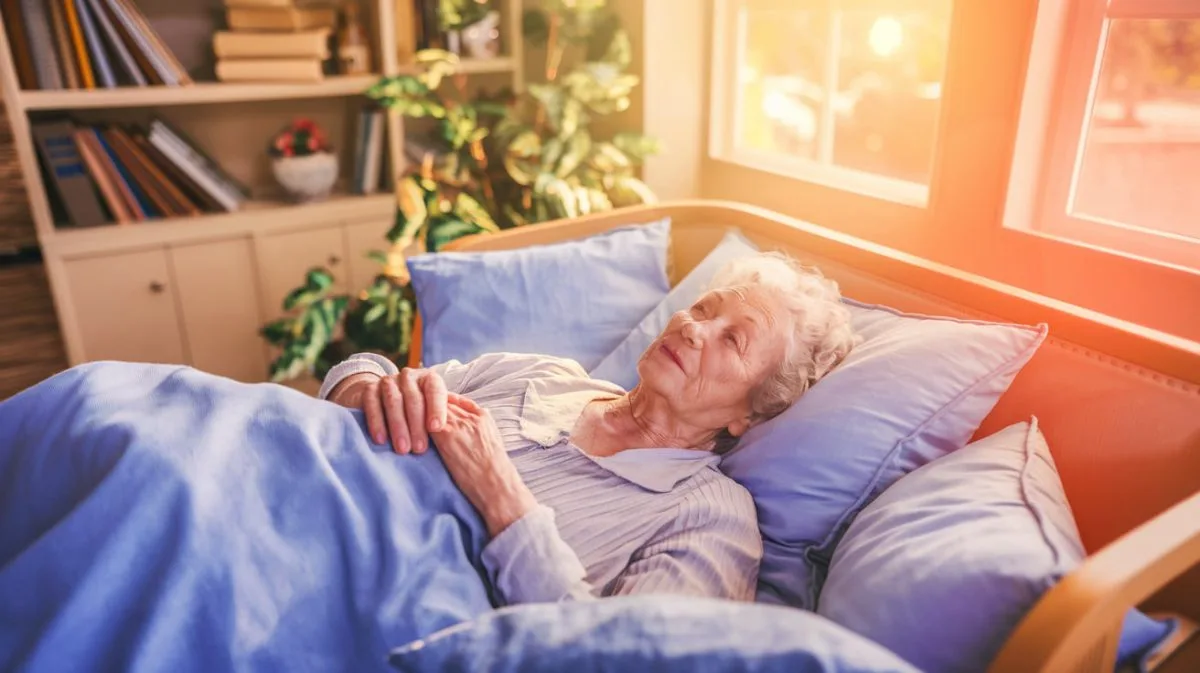
How to care seniors at home? An immobile, bedridden elderly person is unable to perform his/her personal tasks, such as bathing, etc. Therefore, one of his/her children, or elderly nurse or caregiver needs to help them perform these personal tasks.
- Haircut
- Nail cutting
- Brushing teeth
- Bathing the elderly
- Changing clothes
is among the tasks that you or a geriatric nurse must perform in caring for sick and disabled seniors.
How to care seniors at home: Personal Hygiene Basics
- Care of teeth in the elderly should be done daily and regularly.
- You should trim the nails of the elderly regularly; especially in the case of trimming the toenails, which is more difficult for most elderly people, even those who have some ability to move their hands and feet.
- Remove excess hair in the elderly regularly to prevent problems such as sweating or body wounds. This is also a special part of caring for the elderly hospitalized at home. Because the elderly will be in a good mental state.
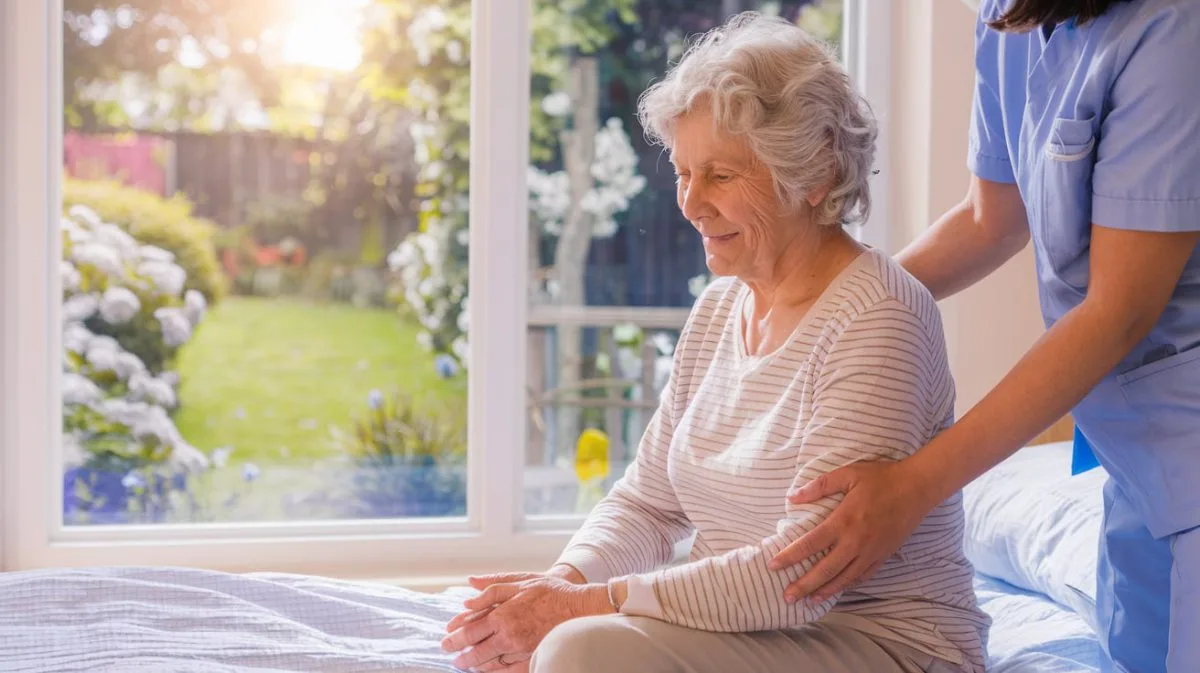
- Regarding the cleanliness of the elderly, you can also help the sick elderly who are not mobile to go to the bathroom that is equipped with a toilet. If they are not able to move at all, you should use adult diapers that are available in the market. Regarding the maintenance of adults wearing cloth diapers and plastic pants, the important point is that cleaning this part of the body regularly is very important to prevent various diseases such as bedsores. Also, changing the patient’s diaper is very important
How Can We Take Care of the Elderly at Home?
How to take care of elderly parents? In the following, we will give you some tips and advice on caring for elderly hospital care at home:
- Planning and organizing time
Try to have a regular daily and weekly schedule for caring for the hospitalized elderly at home. This includes times for taking medications, feeding, personal hygiene, rest time, and other daily activities.
- Providing the necessary facilities
For elderly hospital care at home, the necessary facilities such as a bed, suitable covers, an adjustable toilet seat, hygiene items such as adult diapers, and body washing items should be provided.
- Proper nutrition and caring for the hospitalized elderly at home
Emphasizing proper and proper nutrition for the hospitalized elderly is very important. Make sure you prepare healthy and varied foods for them. You may need to make changes to their diet based on the doctor’s advice.
- Skin and hygiene care
Seniors hospitalized at home or even in the hospital may experience various skin and hygiene problems. Make sure their skin is clean and dry and use special care products such as creams and powders if necessary.
- Pain control and care for elderly hospitalized at home
If the elderly have pain, it is highly recommended to be monitored by a doctor. The doctor may prescribe medications or other methods to control pain. You should follow the doctor’s instructions and take the medications to the elderly on time.
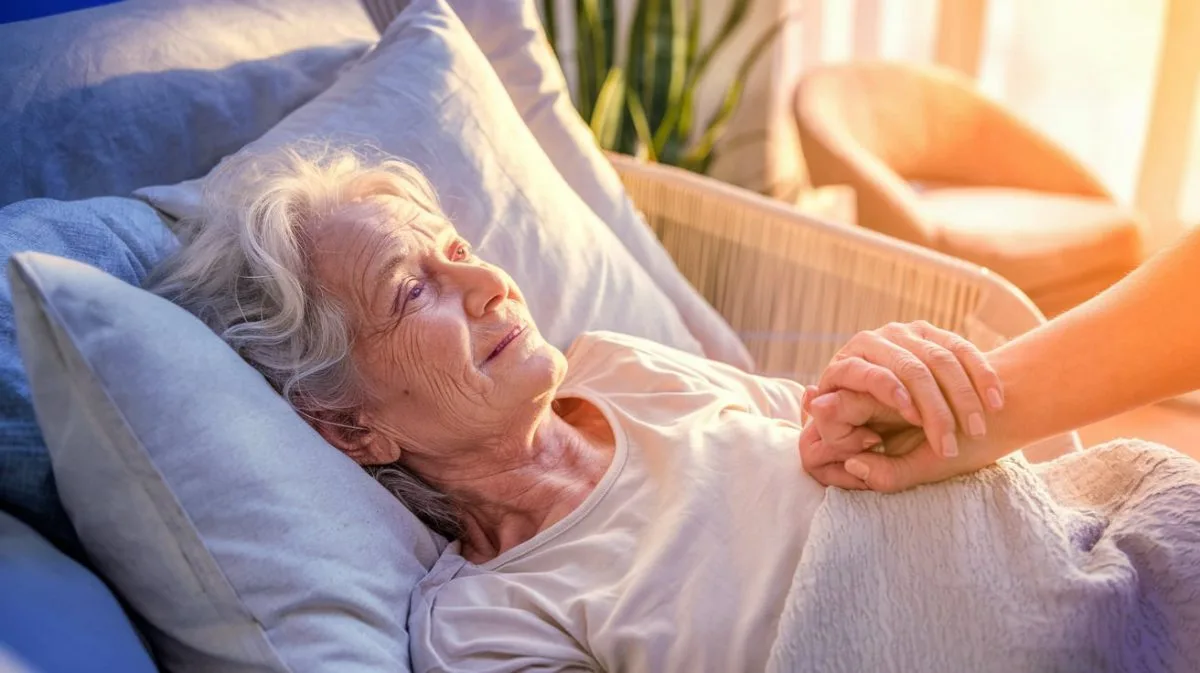
- Cleanliness and disinfection
How to care seniors at home? Due to the weak immune system of some elderly people, it is very important to maintain a clean and disinfected environment. Be sure to disinfect surfaces and use separate personal hygiene items for the elderly. Also, make sure of any infection that may come from visitors and other people who are in direct contact with the elderly, by keeping a long distance.
- Mental care
Caring for elderly people hospitalized at home includes psychological support and providing comfort and reassurance. Creating a friendly and kind atmosphere, providing positive words and conversations, and establishing spiritual connections can help the elderly feel comfortable and happy.
- Movement and Exercise
Care for the elderly hospitalized at home also includes encouraging movement and exercise. If possible, teach them simple and gentle activities for bedridden patients such as breathing exercises and muscle strengthening exercises to maintain muscles and prevent them from becoming stiff and weak.
- Connect with your care team
If you need specialized care for your elderly grandparent, parent, or another loved one, you may need to contact the health care team for his/her care. This team can include doctors, nurses, physiotherapists, and other health and medical professionals. They can provide you with guidance, tips, and advice on medical and physical care for your elderly relative at home.
- Education and awareness
It is important to stay up-to-date with new recommendations and tips for inpatient geriatric care. Seek out reliable resources on elderly care and advice from your care team.
- Self-care is essential for caring for your elderly relative at home
Finally, maintaining your own health and well-being is also very important when caring for your elderly relative at home. Don’t neglect proper rest, proper nutrition, psychological counseling, and self-support.
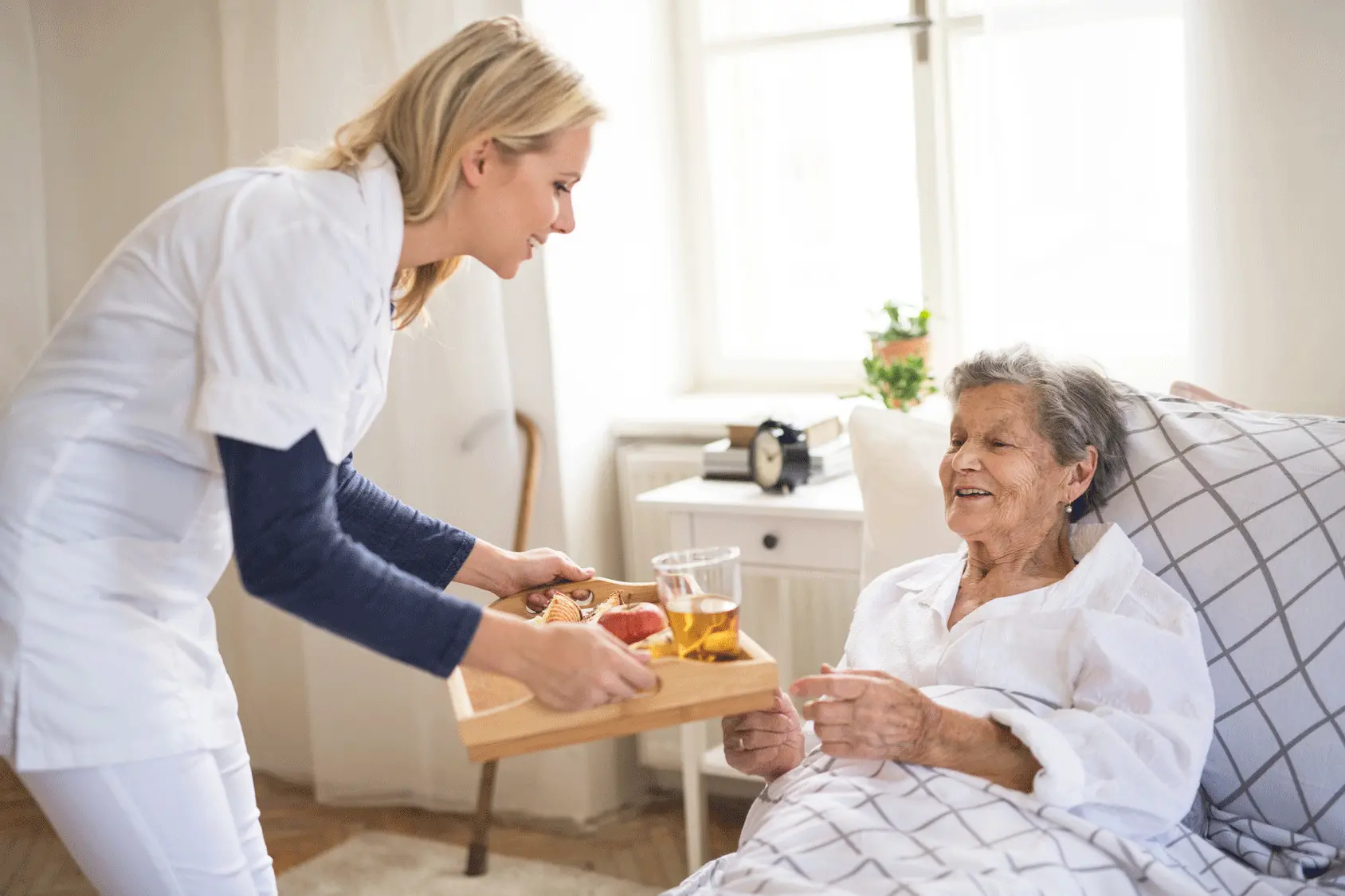
Concluding Remarks
How to care seniors at home? We talked about caring for elderly parents at home in this article of humanhealthmag. Remember that emotional support for the elderly who are hospitalized at home creates mental health for the elderly! Elderly people hospitalized at home need your emotional and mental support; this also applies to elderly people who are not fully conscious. Elderly people who are paralyzed cannot visit others and socialize with others because they are unable to move, so it is very important for children to be with them and show them affection.
As a child of a sick elderly person in bed, encourage them to do some of their own things! The child of a sick and bedridden elderly person can encourage the elderly person to do some things – if they are capable enough to do it. For example, if they want to do an artistic work, encourage them to do this, or if you can, take them to visit a relative or friend from time to time.
Socializing and talking to others is very beneficial for anyone, especially elderly people in bed, and is effective in improving their morale and ultimately improving or maintaining their current condition. Remember that caring for the elderly at home requires long-term attention and commitment. You may face challenges and stress, so social support and self-care are also very important.
We’ve shared our thoughts and now it’s YOUR turn! Please share your insights in the comments, and let’s start a meaningful discussion that will help others, too!

Frequently Asked Questions
How can Bedsores be Prevented in the Elderly Hospitalized at Home?
Changing sleeping positions, using anti-ulcer mattresses, and maintaining skin hygiene are effective ways of prevention.
Can the Care of the Elderly Hospitalized at Home be Completely Entrusted to a Nurse?
Yes, but the family should also play a role in emotional support and supervision.
What Is the Best Diet for the Elderly Hospitalized at Home or in the Hospital?
A balanced diet including protein, vitamins, fiber, and sufficient fluids is very appropriate.
How Can Depression be Prevented in the Elderly Hospitalized at Home?
Establishing social connections, creating appropriate hobbies, and emotional support can be effective.
What Equipment Is Necessary for Caring for the Elderly at Home?
Hospital beds, walkers, wheelchairs, and home medical devices are among the necessary equipment.
